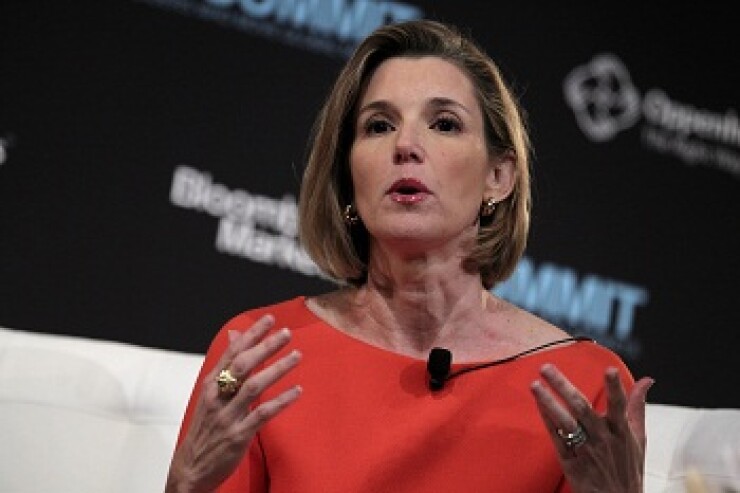
In her first industry-facing event since departing Bank of America Merrill Lynch, Sallie Krawcheck took to the stage of the annual SIFMA conference to discuss the state of wealth management and much more.
There are still real risks and challenges for the wealth management industry, Krawcheck told television talk show host Charlie Rose who interviewed her before the SIFMA audience.
“Clients continue to like, trust and admire their financial advisors,” said the former head of global wealth management at BofA Merrill Lynch. In fact, client trust with their advisors has returned to the levels they were at before the financial crisis of 2008, she added. And the percentage of advisors losing clients remains in the low single-digits for any given year, she said.
The problem is that clients were disappointed with the advisors’ financial institutions, Krawcheck said. She criticized the industry for focusing only on market returns and not talking about planning, asset allocation and liquidity management. She pointed out those existing clients -- when polled -- are seeking advisors who help them plan for the future and return their phone calls. “They don’t feel like they’re being heard,” she said.
However, there are specific groups that are being underserved by the wealth management industry, specifically women and the younger generation. “Our industry does not do a great job for women” and it is not seen as appropriate for the next generation, Krawcheck said. Today, the average age of a client is approximately 63 years old, she said. Young, potential customers are being scared off by the headlines that trumpet the volatility of the markets and the Wall Street scandals that have dampened their trust.
Rose asked Krawcheck about her career as both a woman and as one of the top-ranking executives in the financial services industry. She recounted how she recently visited Harvard University to speak to a group of female undergraduate business majors there. “I kept wanting to say I’m sorry,” she said.
She thought that in 25 years there would have been more progress but women appear to be stuck at 15% of senior management and 15% of corporate boards on Wall Street and as much as only 16% to 18% of women financial advisors.
She noted that some of the reasons are biological with women giving up some career advancement when they take time off to have children.
But she also noted: “We on Wall Street have had a culture of crisis.” And that leads companies to choose people with the same viewpoints, “rather than having a diverse team.” she said. “I’m not talking about gender or color.” Instead, she pointed to “a broad range of perspectives” in other business disciplines.





